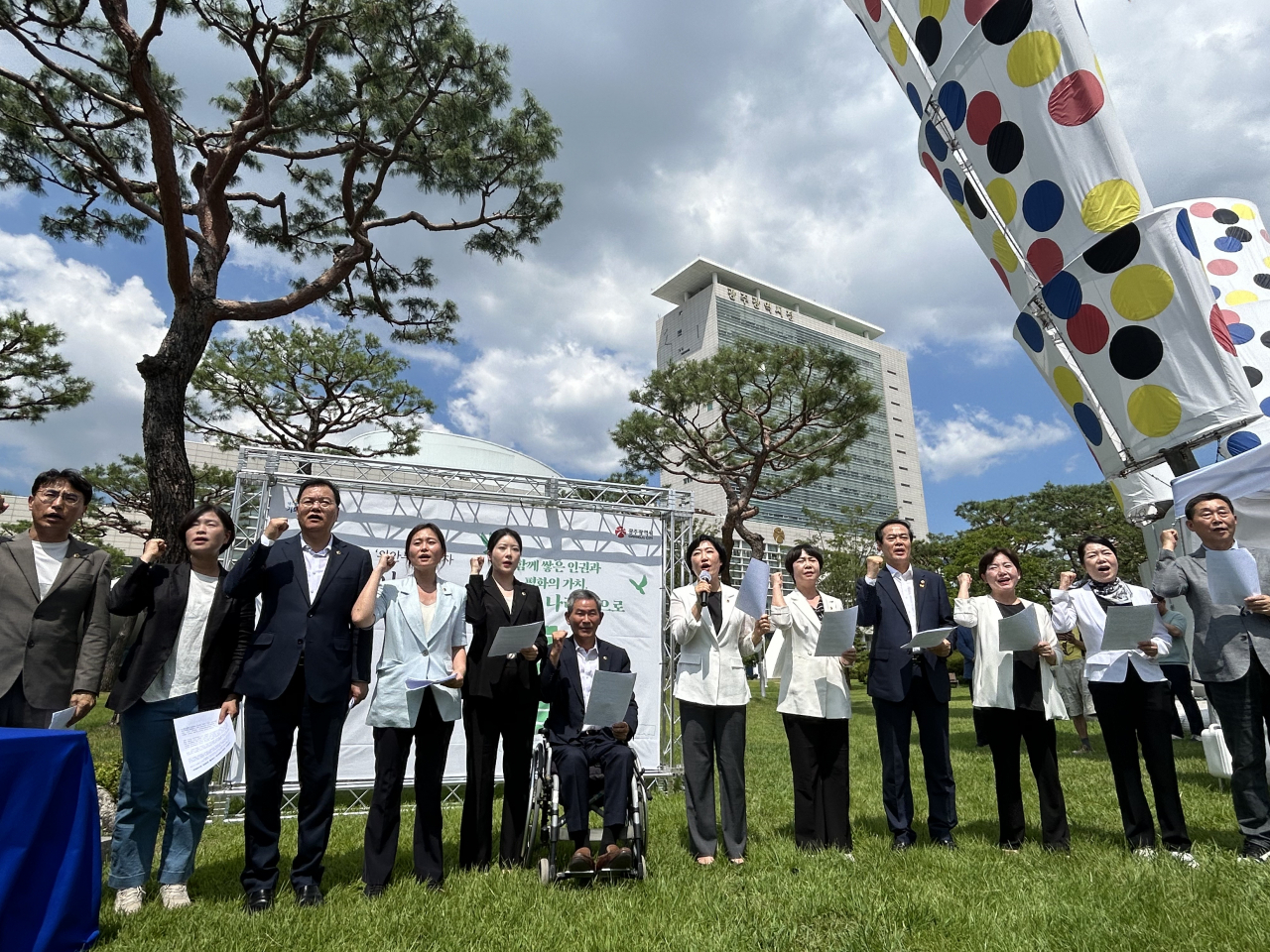 |
Liberal municipal councilors of Gwangju call for President Yoon Suk Yeol to retract his appointment of Kim Hyoung-suk, the new director of the Independence Hall of Korea, in front of the Gwangju City Hall on Wednesday. (Yonhap) |
The controversy over Korea's national day has resurfaced in the past week, after the Yoon Suk Yeol administration appointed a conservative professor accused of supporting a political movement that wants the country’s founding to be recognized as happening in 1948, instead of liberation in 1945.
Kim Hyoung-suk, who took office as the new director of the Independence Hall of Korea earlier this month, has been accused by the liberal bloc and some descendants of Korean independence fighters during Japan's colonial rule (1910-1945), of being a supporter of the New Right political movement.
The Heritage of Korean Independence has called for Kim to step down, citing a video that surfaced online showing the Independence Hall director saying those who believe that Gwangbokjeol is “Aug. 15, 1945, do not clearly know history,” during a private lecture with a conservative group last year.
Gwangbokjeol -- literally "the day light was restored" -- is traditionally considered to mark Korea's independence from Japan and officially translated as Liberation Day.
Many New Right supporters claim that Korea’s true restoration began on Aug. 15, 1948, when South Korea's first President Syngman Rhee was inaugurated as the nation's first president. Critics claim this view undermines the independence fighters' work.
Kim's appointment has sparked a rumor in the political sphere that the Yoon administration's move was a step towards replacing the existing Liberation Day with a "National Foundation Day" on the same date.
The "Foundation Day" controversy has repeatedly emerged over the years, especially when politically conservative presidents took power. While supporters of the ideology behind "Foundation Day" have existed for decades, the argument became more mainstream after the Lee Myung-bak administration, in 2008, launched a committee presided by the prime minister dedicated to honoring "60 years of Korea's foundation" at the time, referring to the establishment of the Rhee administration, the first government to be formed under South Korea's constitution.
President Yoon has recently expressed frustration over the resurfaced controversy, according to an official at the presidential office.
"What good is this to the people who are struggling to make ends meet?" Yoon was quoted as recently telling his aides regarding the matter, an official at the presidential office who requested anonymity told reporters on Tuesday.
The main opposition Democratic Party and the HKI, a state-funded association of independence fighters and their descendants, have announced a boycott of the Aug. 15 Liberation Day ceremony hosted by the government unless Yoon retracts his appointment of Kim.
The ruling People Power Party is divided over the matter, with some treading cautiously while others have accused the main opposition of fueling the controversy behind "Foundation Day."
"The Democratic Party has summoned the old debate surrounding foundation day and is attempting to further divide the public," PPP Rep. Kang Seung-kyoo said.







![[Today’s K-pop] Blackpink’s Jennie, Lisa invited to Coachella as solo acts](http://res.heraldm.com/phpwas/restmb_idxmake.php?idx=644&simg=/content/image/2024/11/21/20241121050099_0.jpg)